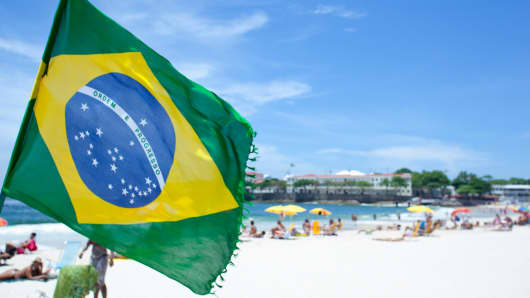The latest interest rate hike by Brazil's central bank will "severely" affect the country's growth outlook and signals that the central bank is getting tough on inflation, analysts told CNBC.
"The myth of Brazil as a very very strong, ideal investment destination is definitely over," James Lockhart-Smith, principal analyst for Latin America at risk-consultancy Maplecroft, told CNBC on Thursday.
Brazil raised its benchmark interest rate to 8.50 percent from 8 percent on Wednesday in an attempt to battle inflation which is at a 20-month high in Latin America's largest economy.
Lockhart-Smith said the rate increase showed that the central bank was "finally getting serious" about inflation and that the Brazilian real, which has weakened almost 10 percent against the dollar over the last 12 months, was much weaker than the bank would like.
Last month, the central bank signaled it will act aggressively to meet its goal of bringing inflation below the 5.84 percent mark posted last year. It has hiked rates three consecutive times this year alone in its attempts to achieve its official inflation target of 4.5 percent - plus or minus two percentage points.
In June, however, annual inflation accelerated at the fastest pace in 20 months at 6.70 percent.
Rising prices have sparked widespread protests throughout Brazil and put pressure on President Dilma Rousseff to appease those protesting against poor public services and perceived corruption.
(Read More: Brazil's Rate Hike Harks Back to 2011, Without the Boom)
Lockhart-Smith said that there were many factors for Brazil's economic slowdown, citing a "cumulative loss of confidence during the year from investors."





